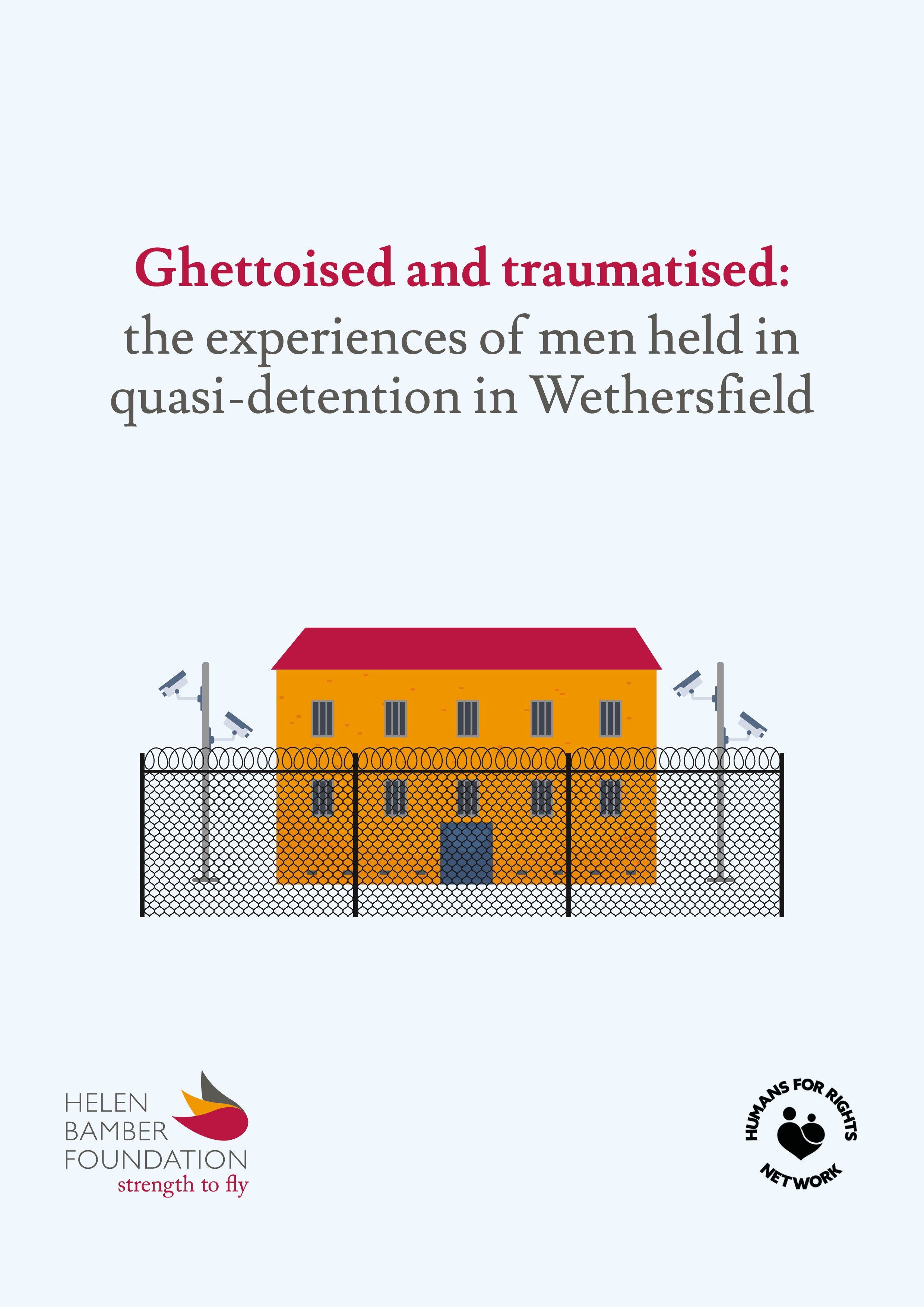Ghettoised and traumatised: the experiences of men held in quasi-detention in Wethersfield
Our new report with Humans for Rights Network (HFRN) shows that the government’s use of Wethersfield airbase as a large ‘open-prison camp’ for men seeking asylum for the last five months has already caused irreparable and profound harm.
HBF’s clinicians have carried out 10 detailed assessments and HFRN has conducted casework with over 140 individuals since the camp opened in July 2023, and have found that the men have displayed symptoms of worsening mental health following transfer to Wethersfield, including low mood, loneliness, flashbacks, reduced appetite, weight loss, feelings of despair and difficulty sleeping, and a worsening in symptoms of Post-Traumatic Stress Disorder. Men held there have reported anxiety and depression, suicidal ideation, intense desperation and fear, self-harm, and acute sleep deprivation. When one man shared his suicidal thoughts with members of staff at the site, he was simply told that it was "normal in this environment".
By the end of October 2023, 508 men had been placed in Wethersfield – the top countries of origin being Afghanistan (29%), Iran (20%) and Eritrea (16%). Many of them are survivors of torture and trafficking and those with severe mental health issues. This is despite Home Office guidance making clear that these groups should not be placed there – in the first three months of being open, a quarter of residents were moved out of Wethersfield because they did not meet the camp’s ‘suitability criteria’. At least 11 children wrongly assessed to be adults have been identified in the camp.
The camp is extremely isolated, has overcrowded living conditions, and lacks the necessary healthcare provision, causing additional pain and trauma to people who have already endured conflict, oppression, abuse, torture and trafficking. The camp's resemblance to a prison, with barbed wire and surveillance, triggers traumatic experiences among residents, many of whom have had experiences of other ‘camps’, in Egypt and Libya for example.
Salman, from Iran, said:
“I have attempted suicide personally because of the conditions of the camp. Once I tried to hang myself and once there was a group of us six or seven people tried to set ourselves on fire, they didn’t let us in the camp and extinguished the fire, I had a part of my T-shirt burnt, many others as well, it has affected our mental health in a very bad way… We were told you only stay for two weeks here; it was a lie; it’s been two months nothing happened.”
The report calls on the government to:
- Immediately close all ‘large scale’ accommodation centres on ex-military sites/barges.
- Ensure that thorough support needs assessments are completed by the Home Office.
- House people seeking asylum in communities.
- Ensure that the backlog of asylum claims is cleared and decisions on new claims made in a timely way.
Read the full report here or click on the arrow below.




